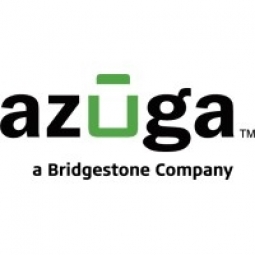Customer Company Size
Mid-size Company
Region
- America
Country
- United States
Product
- Azuga Fleet
Tech Stack
- Real-time vehicle tracking
- Driver Scorecard features
Implementation Scale
- Enterprise-wide Deployment
Impact Metrics
- Cost Savings
- Employee Satisfaction
Applicable Industries
- Telecommunications
Applicable Functions
- Logistics & Transportation
Use Cases
- Vehicle Telematics
- Fleet Management
Services
- System Integration
About The Customer
GalaxyOne Marketing is a regional service provider for Dish Networks. The company is based in Bettendorf, Iowa, and serves the Quad Cities area of Iowa and Illinois. With a fleet of 245 vehicles and an on-the-road crew of over 200 employees, the business services 600–700 homes per day and continues to grow. GalaxyOne is a recipient of Azuga’s Safe Driver Awards. The company's operations involve a wide range of destinations that change every day, making it a challenge to maintain a safe driving culture among its employees.
The Challenge
GalaxyOne, a regional service provider for Dish Networks, faced a significant challenge in developing a safe driving culture among its employees. The company, which services 600–700 homes per day, has a fleet of 245 vehicles and an on-the-road crew of over 200 employees. The challenge was to motivate these individuals to engage in safety-mindedness and reduce vehicle accidents. The wide and ever-changing range of destinations each day added to the complexity of the situation.
The Solution
To address the challenges, GalaxyOne employed Azuga’s posted speed limit alerts and real-time vehicle tracking to monitor how and where drivers are operating. Azuga’s Driver Rewards were deployed to rally employees around a positive purpose and motivate safe driving behaviors. Management utilized Azuga’s Driver Crash feature to alert managers and record vital accident information. These solutions provided the company with the tools to open objective conversations with employees about areas of driving improvement and effectively reinforce safe driving habits with compensation reflective of driving scores.
Operational Impact
Quantitative Benefit

Case Study missing?
Start adding your own!
Register with your work email and create a new case study profile for your business.
Related Case Studies.

Case Study
Vodafone Hosted On AWS
Vodafone found that traffic for the applications peak during the four-month period when the international cricket season is at its height in Australia. During the 2011/2012 cricket season, 700,000 consumers downloaded the Cricket Live Australia application. Vodafone needed to be able to meet customer demand, but didn’t want to invest in additional resources that would be underutilized during cricket’s off-season.

Case Study
SKT, Construction of Smart Office Environment
SK T-Tower is the headquarters of SK Telecom. Inside the building, different types of mobile devices, such as laptops, smartphones and tablets, are in use, and with the increase in WLAN traffic and the use of quality multimedia data, the volume of wireless data sees an explosive growth. Users want limitless Internet access in various places in addition to designated areas.











